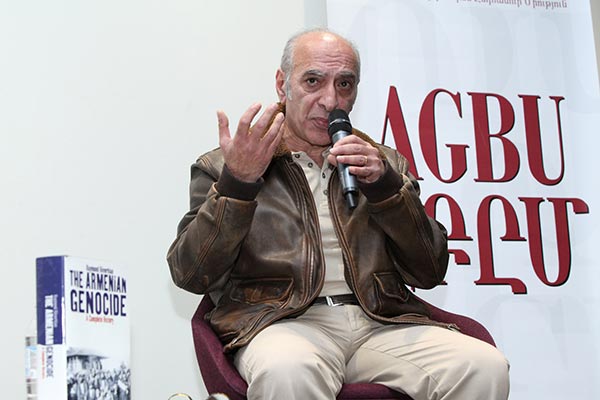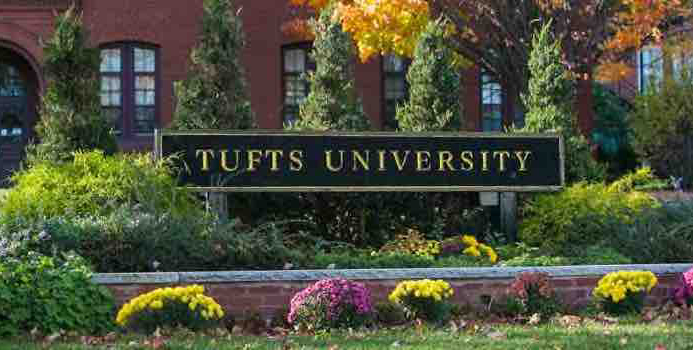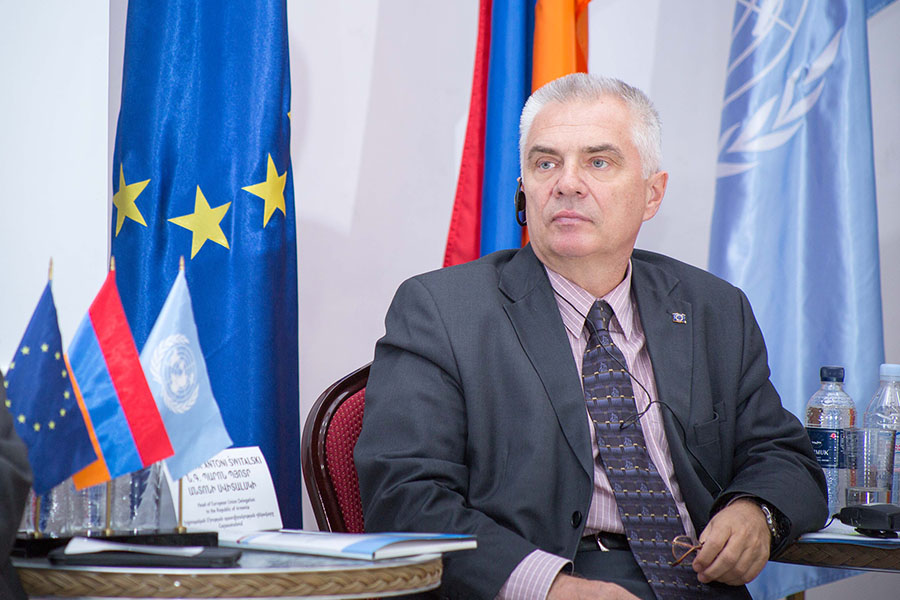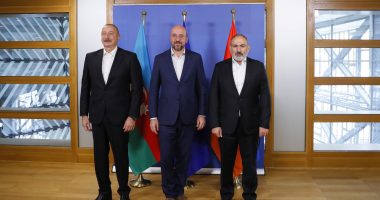By Sara Khojoyan
(ArmeniaNow)
A country cannot be a nation if it does not know its past and has not analyzed it. With these words renowned French-Armenian historian Raymond Kevorkian opened his lecture in Yerevan on Wednesday evening.
The lecture entitled “Analyze the History and Build the Future. The Example of Genocide Studies” was organized by the Armenian General Benevolent Union (AGBU) and hosted in its headquarters in the Armenian capital.
Kevorkian, 63, is the director of Nubarian Library in Paris and editor of d’Histoire arménienne contemporaine journal. He is also a foreign member of the Armenian National Academy of Sciences.
Taking a view on history from a political and cultural perspective, Kevorkian presented to the audience his vision of challenges and opportunities in the process of international recognition of the Armenian Genocide.
“The problem that Armenia and Armenians have with the Turkish Republic is very complex. There is an issue of national security for Armenia. Armenia does not have enough instruments to resist this state [Turkey], which doesn’t have a bad standing on the international diplomatic stage today,” he said.
According to the historian, who in 2015 received the Legion of Honor, the highest decoration in France, the only trump card that Armenia has is to study the genocide and through that to set international platforms against Turkey. Showing that all crimes in the world have similarities, that the cause of the Second World War was the First World War, the historian drew parallels between the current Turkish policy towards Kurds and the policies carried out against Armenians in Ottoman Turkey a century ago.
“The only difference is that today there is no international war and for this reason there is a lower risk of genocide,” he said, adding that the role of the Kurdish factor will receive significant attention in Europe in the coming years. However, the historian does not expect Armenians to be able to take advantage of this situation in any way because “they do not have any cards.”
Addressing the involvement of Germany in the genocide, Kevorkian said that this country has certain obligations to Armenia.
According to the historian’s information, data have emerged in recent years whose study may be useful for the Armenian diplomacy in order to talk in a more demanding language with Germany.
“In other words, speaking not in diplomatic terms, Germany has some wrong against us to redress,” he said.
The French-Armenian scholar believes it is better to speak about the Genocide in the language of well researched facts, for example, passing from demands for the protection of historical and cultural values to their return. Kevorkian believes that setting demands is only meaningful if you have some “winning cards”.
“If you can win without using the word Genocide, then you should start with it,” said Kevorkian, adding that if 40-50 scholars make a research on Armenian heritage in Turkey, in a few years it will be possible to draw a map of the Armenian property and riches in Western Armenia.










